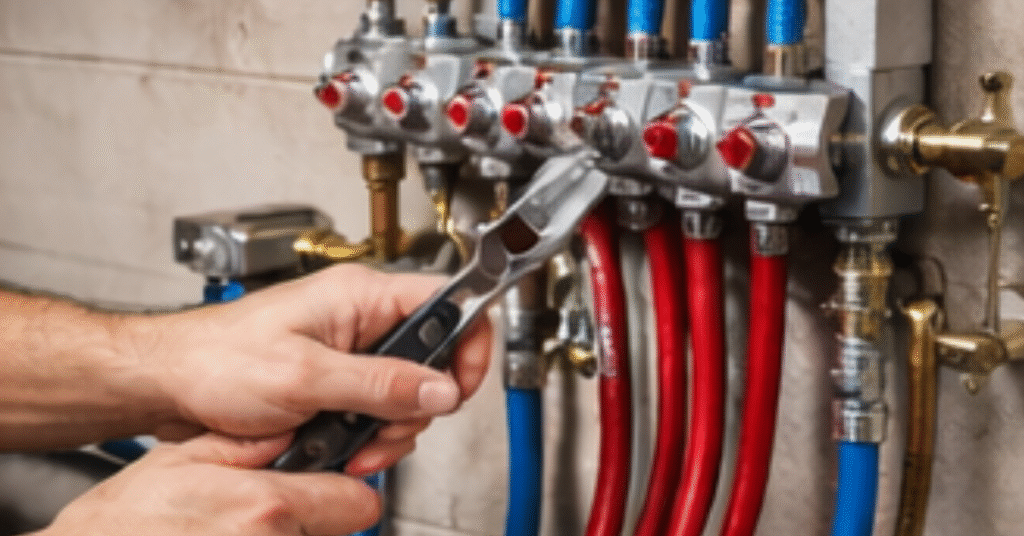
Introduction: The Invisible Danger in Your Home
Seattle homes rely heavily on gas-powered appliances like water heaters—especially during the chilly, damp months. But what many homeowners don’t realize is that a broken or improperly vented water heater can release deadly carbon monoxide (CO) into your living space.
Carbon monoxide is known as the “silent killer” because it’s odorless, tasteless, and invisible, making it virtually undetectable without a working CO alarm. Each year, over 400 Americans die from unintentional CO poisoning, with thousands more hospitalized, according to the Centers for Disease Control and Prevention (CDC).
➡️ Source: CDC Carbon Monoxide Poisoning Info
If you live in Seattle, you’re not immune—CO incidents have occurred in neighborhoods like Ballard, Beacon Hill, and Queen Anne. That’s why regular maintenance and inspections of your water heater are crucial.
🔥 How Broken Water Heaters Cause Carbon Monoxide Leaks
Gas water heaters create heat by burning fuel. When combustion happens correctly, carbon monoxide is safely vented outdoors. But when something goes wrong—such as:
- A cracked heat exchanger
- A clogged or disconnected flue
- Backdrafting due to poor ventilation
- Rust, corrosion, or soot buildup
…CO can build up indoors instead of escaping.
Seattle’s tight-sealed, energy-efficient homes may also worsen this risk, as airflow is often limited.
⚠️ Warning Signs of Carbon Monoxide Poisoning
Watch for these early symptoms, which often mimic the flu but without fever:
- Headache
- Dizziness or light-headedness
- Nausea or vomiting
- Shortness of breath
- Confusion or blurred vision
- Loss of consciousness (in severe cases)
If multiple family members experience symptoms at the same time, especially near water heaters or furnaces, evacuate the home and call 911 immediately.
🏠 Seattle Safety Tips to Prevent Carbon Monoxide Exposure
Here’s how to protect your household from this silent threat:
✅ 1. Schedule Annual Water Heater Inspections
Have a licensed professional inspect and service your gas water heater at least once a year. This ensures proper venting and combustion.
💡 Einstein Pros Seattle offers expert water heater inspections and repairs.
✅ 2. Install UL-Certified Carbon Monoxide Detectors
Washington State law requires CO detectors in all homes with gas appliances. Place one on every floor and near sleeping areas.
📚 Source: Washington State Building Code Council
✅ 3. Check for Rust or Soot Around the Unit
If you see black streaks, soot buildup, or rust around your heater, it could indicate poor combustion or blockage.
✅ 4. Keep the Area Around the Heater Ventilated
Ensure no objects are blocking your water heater’s airflow or vent system. Avoid storing items too close to the unit.
✅ 5. Upgrade Older Units
If your gas water heater is over 10–12 years old, consider upgrading. Newer models have sealed combustion chambers and better safety features.
📍 Why This Matters More in Seattle
Seattle’s damp climate, older homes, and tight insulation make homes more vulnerable to backdrafting and exhaust issues. Additionally, basement installations—common in Seattle—can increase CO risks if ventilation is poor.
That’s why proactive maintenance and professional inspection are especially critical for Seattle residents.
🔧 Need Help? Trust Einstein Pros Seattle
If you suspect a carbon monoxide issue—or just want peace of mind—don’t wait. Let the licensed experts at Einstein Pros Seattle inspect your water heater and ensure your home is safe.
We specialize in:
- Gas water heater inspections
- Flue and exhaust repair
- Emergency water heater replacement
- Code-compliant CO detector recommendations
✅ Final Thoughts
Carbon monoxide leaks from broken water heaters are entirely preventable. With a few safety measures and the help of trusted professionals, your Seattle home can remain both warm and safe year-round.
🔗 Resources & Further Reading
- CDC: Carbon Monoxide Poisoning
- Washington State CO Detector Law
- Seattle Fire Department CO Safety Guide
